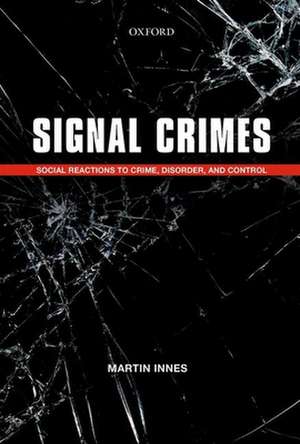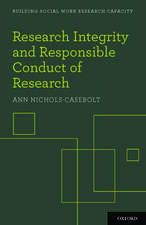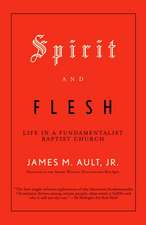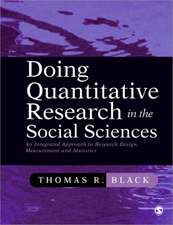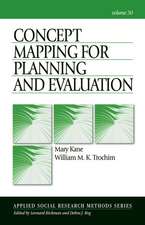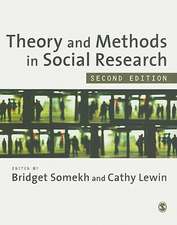Signal Crimes: Social Reactions to Crime, Disorder, and Control
Autor Martin Innesen Limba Engleză Hardback – 12 iun 2014
| Toate formatele și edițiile | Preț | Express |
|---|---|---|
| Paperback (1) | 265.45 lei 31-37 zile | |
| OUP OXFORD – 11 iun 2014 | 265.45 lei 31-37 zile | |
| Hardback (1) | 473.47 lei 31-37 zile | |
| OUP OXFORD – 12 iun 2014 | 473.47 lei 31-37 zile |
Preț: 473.47 lei
Preț vechi: 654.72 lei
-28% Nou
Puncte Express: 710
Preț estimativ în valută:
90.64€ • 93.22$ • 75.20£
90.64€ • 93.22$ • 75.20£
Carte tipărită la comandă
Livrare economică 08-14 februarie
Preluare comenzi: 021 569.72.76
Specificații
ISBN-13: 9780199684465
ISBN-10: 0199684464
Pagini: 214
Dimensiuni: 162 x 241 x 20 mm
Greutate: 0.49 kg
Editura: OUP OXFORD
Colecția OUP Oxford
Locul publicării:Oxford, United Kingdom
ISBN-10: 0199684464
Pagini: 214
Dimensiuni: 162 x 241 x 20 mm
Greutate: 0.49 kg
Editura: OUP OXFORD
Colecția OUP Oxford
Locul publicării:Oxford, United Kingdom
Recenzii
One of the most eagerly anticipated criminological publications, Martin Innes' Signal Crimes makes a persuasive case for rethinking much of our approach to crime and social order. In an extraordinarily wide-ranging set of essays he focuses our attention on the ways in which order and disorder are perceived, understood and communicated, and the implications of this for the ways in which formal and informal social control work. This is one book that will surely stand the test of time.
It is difficult to capture just how important this work is. In recent years, Martin Innes has pioneered an innovative research programme which creatively and rigorously explores the many ramifications of the simple but profound truth that 'some incidents matter more than others in shaping public sentiments about crime, disorder and control'. Signal Crimes brings together Innes' work in this field, covering substantive topics as varied as terrorism, murder and low-level urban disorder, as well as penetrating observations on methodology. It is a vital text.
Professor Innes has developed a seminal body of work, supported by mounting evidence from others concerning how people read and rate crime and disorder in their environment. This thinking was pivotal in the trials that re-invented neighbourhood policing in England and Wales.
"Nothing short of a new framework for understanding the social meaning of crime and criminal justice."
It is difficult to capture just how important this work is. In recent years, Martin Innes has pioneered an innovative research programme which creatively and rigorously explores the many ramifications of the simple but profound truth that 'some incidents matter more than others in shaping public sentiments about crime, disorder and control'. Signal Crimes brings together Innes' work in this field, covering substantive topics as varied as terrorism, murder and low-level urban disorder, as well as penetrating observations on methodology. It is a vital text.
Professor Innes has developed a seminal body of work, supported by mounting evidence from others concerning how people read and rate crime and disorder in their environment. This thinking was pivotal in the trials that re-invented neighbourhood policing in England and Wales.
"Nothing short of a new framework for understanding the social meaning of crime and criminal justice."
Notă biografică
Martin Innes is Professor in the School of Social Sciences at Cardiff University where he leads the work of the Universities' Police Science Institute. He is recognised as one of the world's leading thinkers on policing and social control. Author of two previous books Investigating Murder (Oxford) and Understanding Social Control (Open University Press), from 2004-14 he was Editor of the journal Policing and Society, and he has been a contributor to the Guardian and Prospect Magazine. His work on signal crimes was one of the key influences upon the development of Neighbourhood Policing in the UK, and has led to him being regularly asked to advise policing agencies and governments around the world, including in the US, Australia, Canada and Holland.
